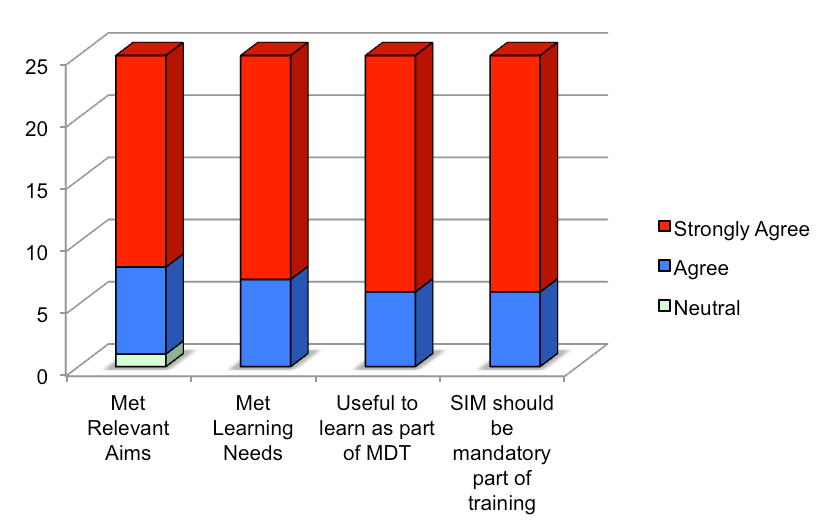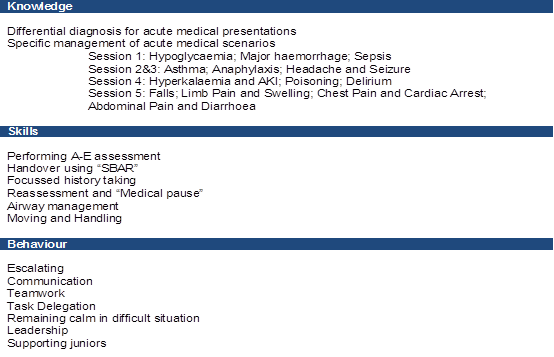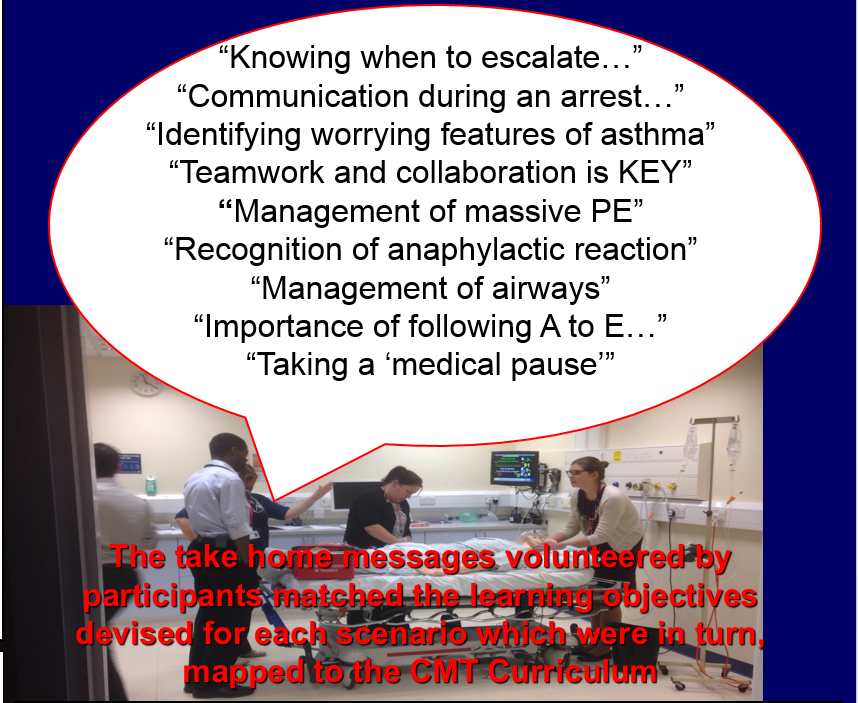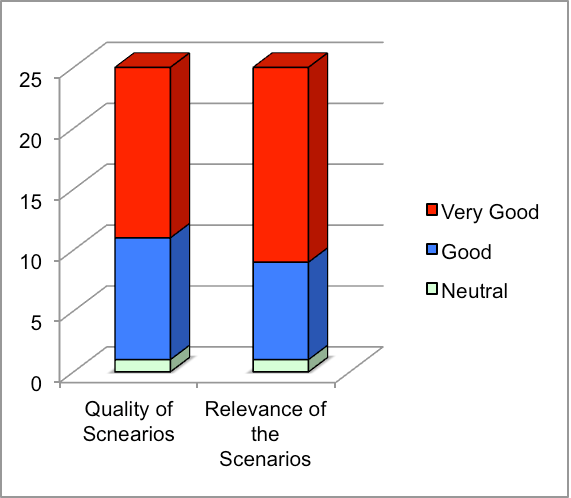



Theme
10BB Simulation 2
INSTITUTION
NHS Lothian - Acute Medicine/Simulation - Edinburgh - United Kingdom
Simulation-based medical education (SBME) is increasingly used in healthcare to improve training, quality of care and patient safety1. It facilitates learning in a supportive environment and encourages evaluation of practice within a multidisciplinary team (MDT). Although integration of SBME into the postgraduate educational curriculum is thought to be a key feature for its effective use2, there is a relative dearth of SBME in Acute Medicine. We have designed and implemented a novel multi-disciplinary high-fidelity simulation programme in Acute Medicine at the Royal Infirmary of Edinburgh (RIE), mapped to the core medical training (CMT) curriculum.3
The aim of this work was to improve management of acute medical emergencies and patient safety by providing a departmental multidisciplinary team-based SBME programme mapped to the CMT curriculum.
Team-based simulation sessions (comprising of three clinical scenarios) are delivered on a monthly basis. Sessions are delivered by trained faculty members in the clinical skills simulation suite at RIE. Twelve scenarios encompass all four “Emergency” and the “Top 20 Presentations” in the CMT Curriculum3, with learning outcomes mapped to specified competencies3. Post session feedback questionnaires were developed to assess immediate benefit and long-term application of learning.
|
|
 |
Figure 1 demonstrates the positive reception of sessions by participants; Figure 2 shows qualitative feedback of all sessions.
100% of participants felt that the sessions would positively affect their practice with respect to patient safety.
Participants identified Key Learning Points, split into the 3 CMT curriculum domains, on their written feedback as shown below.

The take home messages volunteered by participants matched the learning objectives devised for each scenario which were in turn, mapped to the CMT Curriculum

Participants provided us with examples of their longer term application of simulation to their practice:
“Teamwork and evaluating each persons skills is something I now employ daily”
“Simulation was useful to remember doses of benzodiazepines and use of airway adjuncts when I subsequently managed a seizing patient ”
“ Simulation helped me structure my thoughts as I assessed and managed a patient having anaphylaxis”
“It certainly helped that my FY1 and I attended simulation on hyperkalaemia together - we were on the same page when it came to managing a similar scenario on the ward”
Provisional analysis indicates that this simulation programme has been successful in acheiving it's desired objectives for each scenario which are in turn mapped to the CMT curriculum. We believe we have also demonstrated that it has an impact on long term learning. Furthermore, participants all reported positive experiences from the programme and were keen to attend further sessions.
Future plans include:
To continue to run monthly sessions, and enhance them to involve further technical and non-technical skills, e.g., CVP insertion and communication skills
Ongoing evaluation of the application of SBME learning to clinical practice
To integrate SBME into the CMT teaching programme in Lothian and, if it continues to be successful, to spread and share with other health boards
Doctor Anna Dover (Consultant RIE)
Doctor Jenny Ross (Trainee ACCS South East Scotland)
1. R Aggarwal et al. Training and Simulation for Patient Safety. Qual Saf Health Care, 2010;19:34-43
2. Issenberg SB et al. Features and uses of High-fidelity medical simulations that lead to effective learning: a BEME systematic review. Medical Teacher 27:10-28.
3. Joint Royal Colleges of Physicians Training Board. Specialty Training Curriculum for Core Medical Training.2009 (with amendments 2013)

 Send Email
Send Email